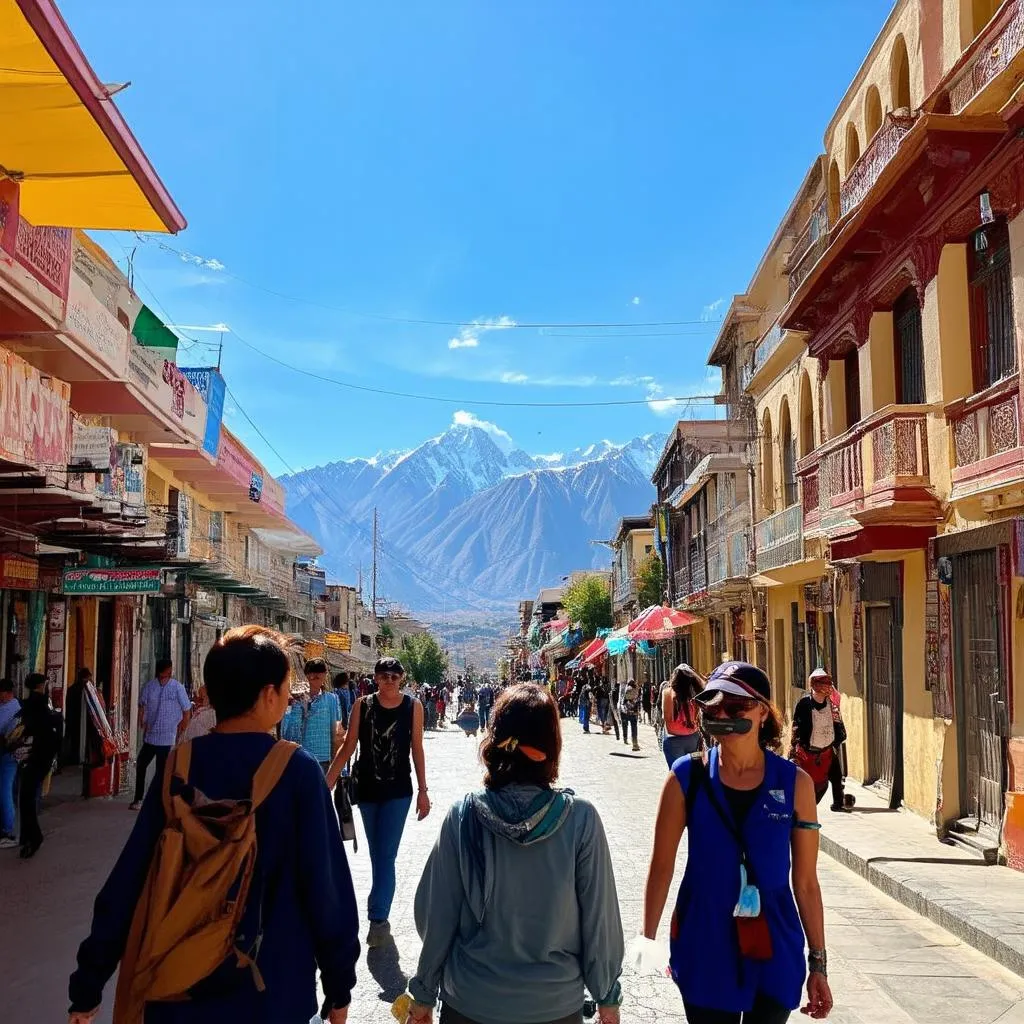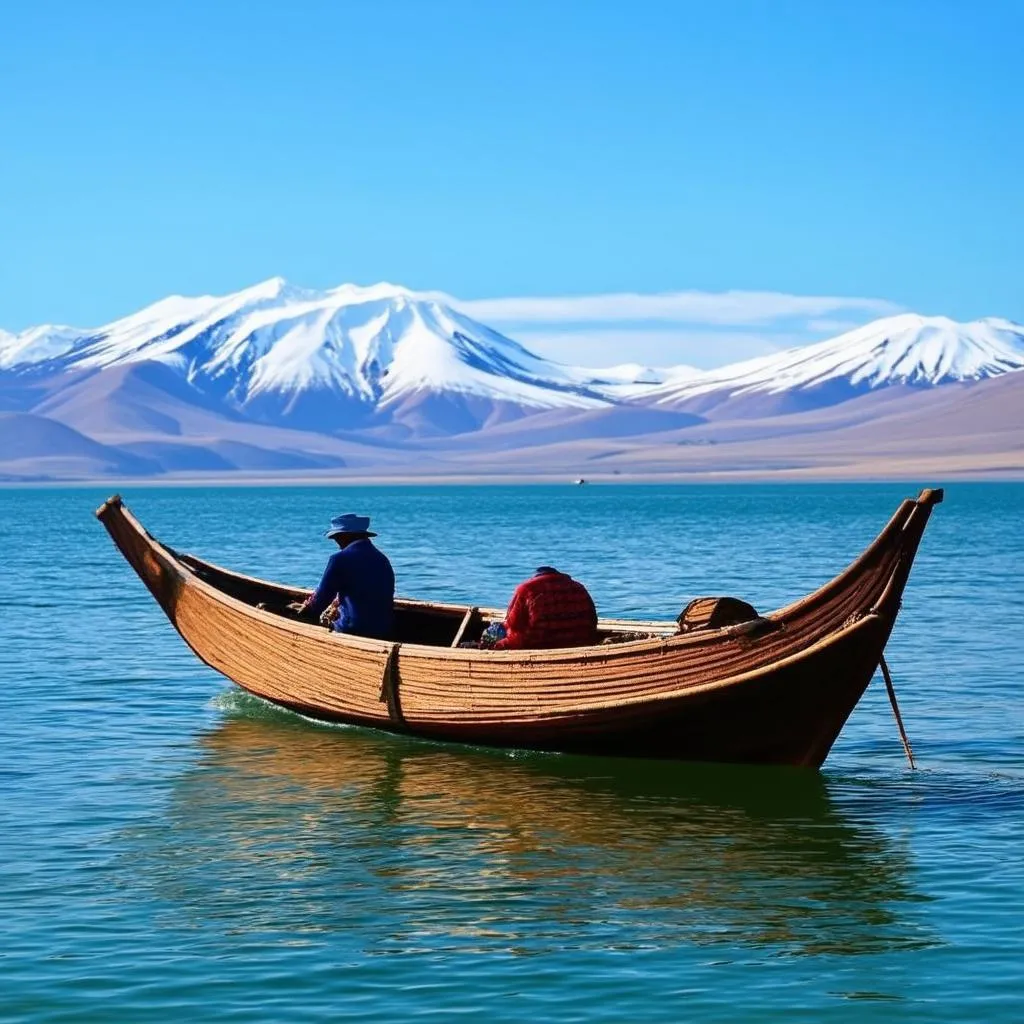“The world is a book and those who do not travel read only one page.” – Saint Augustine. This rings especially true for adventurous souls drawn to the raw beauty and rich culture of South America, and Bolivia, in particular. But, like turning to a new chapter, the question often arises: Is Bolivia Safe To Travel?
Let’s delve into this captivating country, exploring its safety while addressing common concerns and empowering you to make informed travel decisions.
Unveiling Bolivia: Beauty Intertwined with Practicalities
From the breathtaking Uyuni Salt Flats to the majestic Andes Mountains and the vibrant Amazon rainforest, Bolivia boasts a diverse landscape and a rich indigenous culture that captivates the heart. It’s a country brimming with adventure, offering trekking, wildlife encounters, and a glimpse into ancient civilizations.
But alongside its allure, it’s essential to be realistic about safety. Bolivia, like many South American countries, faces challenges with petty crime, scams, and social unrest. However, don’t let this deter you! With awareness, preparation, and some handy tips, you can navigate this incredible country confidently.
Navigating Safety in Bolivia: A Practical Guide
Common Concerns and How to Address Them:
Petty Theft: Like many tourist destinations, petty theft can occur in crowded areas or on public transport.
- Solution: Keep valuables secure, utilize hotel safes, and be mindful of your belongings.
Scams: Be wary of overly friendly individuals offering unsolicited help, as it could be a ploy. - Solution: Research common scams, negotiate prices upfront, and trust your instincts.
Transportation: Road conditions can be challenging, and bus accidents are not uncommon. - Solution: Opt for reputable bus companies, avoid overnight travel when possible, and consider flying for longer distances.
Social Unrest: While generally peaceful, Bolivia occasionally experiences protests or demonstrations. - Solution: Stay informed about current events, avoid large gatherings, and heed advice from locals or your accommodation.
 Safety in La Paz, Bolivia
Safety in La Paz, Bolivia
Practical Safety Tips for a Smooth Journey
- Learn Basic Spanish: While English is spoken in tourist areas, knowing basic Spanish will significantly enhance your interactions and ability to navigate.
- Exchange Currency Safely: Utilize banks or reputable exchange bureaus and avoid exchanging money on the street.
- Stay Connected: Purchase a local SIM card for easy communication and access to maps and travel apps.
- Pack Smart: Pack light, comfortable clothing, sturdy shoes for trekking, and essential medications. Don’t forget sunscreen, insect repellent, and a first-aid kit.
Planning Your Bolivian Adventure
Budget-Friendly Travel:
Bolivia is a haven for budget travelers. From affordable accommodation options like hostels and guesthouses to inexpensive local transportation and delicious street food, you can easily experience the best of Bolivia without breaking the bank.
Must-Visit Destinations:
- Salar de Uyuni: The world’s largest salt flat, offering surreal landscapes and unforgettable photo opportunities.
- La Paz: The bustling capital city, perched high in the Andes, is a mix of modern and traditional, with vibrant markets and stunning views.
- Lake Titicaca: The world’s highest navigable lake, home to indigenous communities and fascinating floating islands.
- Madidi National Park: A biodiversity hotspot in the Amazon rainforest, teeming with wildlife and offering jungle treks and river excursions.
 Tranquility in Lake Titicaca, Bolivia
Tranquility in Lake Titicaca, Bolivia
Is Bolivia Safe for Solo Female Travelers?
While solo travel in Bolivia requires extra vigilance, it is entirely possible for women. Opt for well-lit and populated areas, especially at night, and consider staying in reputable hostels known for solo traveler safety.
Tapping into Local Wisdom:
“When in Rome, do as the Romans do” holds true in Bolivia. Embrace the local customs, dress modestly, and show respect to the indigenous culture. It’s also helpful to learn a few basic Quechua phrases, the language of the indigenous population, as a sign of respect.
The Feng Shui of Travel:
In Feng Shui, travel is seen as a powerful way to shift energy and invite new opportunities. Before embarking on your Bolivian adventure, declutter your home and pack with intention, bringing items that spark joy and align with your travel goals.
FAQs About Safety in Bolivia:
Q: Is it safe to drink the tap water in Bolivia?
A: It’s best to stick to bottled water, which is readily available and inexpensive.
Q: What about altitude sickness in high-altitude areas?
A: Allow time for acclimatization, drink plenty of water, and consider coca tea, a local remedy for altitude sickness.
Q: Are credit cards widely accepted?
A: While larger establishments in cities may accept credit cards, cash is king, especially in rural areas.
Q: Do I need any special vaccinations for Bolivia?
A: Consult your healthcare provider for personalized recommendations, but routine vaccinations and Hepatitis A and Typhoid are generally advised.
Conclusion: Embracing the Bolivian Adventure
So, is Bolivia safe to travel? The answer, like most travel destinations, is: it depends. With awareness, preparation, and a spirit of adventure, Bolivia offers a rewarding and unforgettable experience.
Remember, travel is not about being fearless, but about managing risks and embracing the unknown. By staying informed, planning carefully, and remaining adaptable, you can navigate this captivating country with confidence and create memories that will last a lifetime.
For more in-depth travel information and resources, visit travelcar.edu.vn. Happy travels!